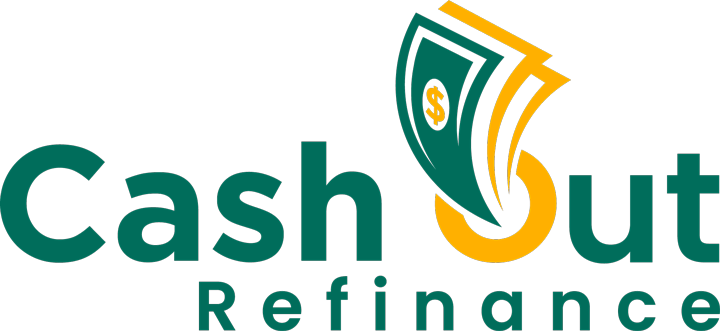Maximizing Your Home Equity with a Conventional Cash-Out Refinance: Best Practices
Owning a home is one of the most significant financial assets a person can have. As you pay down your mortgage and your home appreciates in value, you build equity—an incredibly valuable resource. A conventional cash-out refinance allows homeowners to tap into that equity by refinancing their mortgage for more than what they owe and taking the difference in cash. This can be a strategic way to access funds for a variety of purposes, from home improvements to debt consolidation or even investment opportunities.
In this detailed guide, we’ll explore how to maximize your home equity through a conventional cash-out refinance. We’ll cover effective strategies for using your home equity, tips on timing your refinance for the best rates, and how to avoid common pitfalls such as over-borrowing. By following these best practices, you can ensure that you make the most of your home’s value.

What is a Conventional Cash-Out Refinance?
A conventional cash-out refinance allows you to replace your existing mortgage with a new one while borrowing more than you currently owe. The difference between your old loan and the new one is given to you in cash, which you can use for any purpose. This type of refinance is an effective way to unlock your home’s equity without taking out a separate loan or line of credit.
For example, if your home is valued at $400,000 and you still owe $200,000 on your mortgage, you could refinance for $320,000—allowing you to take out $120,000 in cash (minus closing costs). This provides an excellent opportunity to leverage your home equity for a variety of financial goals.
Strategies for Maximizing Your Home Equity Through a Cash-Out Refinance
Once you’ve unlocked your home equity, how you use the cash can have a significant impact on your long-term financial health. The key to maximizing your home equity is to use it strategically, ensuring that it not only meets your immediate needs but also enhances your overall financial stability.
1. Investing in Home Improvements
One of the most popular uses for a conventional cash-out refinance is to invest in home improvements. Renovating your home not only improves your quality of life but also boosts your property’s market value. By increasing your home’s value, you effectively increase your equity further, which could pay off when it comes time to sell.
Some of the home improvements that typically offer the highest return on investment (ROI) include:
- Kitchen Remodels: A modern, updated kitchen is one of the top features buyers look for. Even a modest kitchen remodel, such as upgrading countertops, installing new appliances, or updating cabinetry, can significantly increase your home’s value.
- Bathroom Renovations: Upgrading an outdated bathroom or adding a new one can provide a great return. In fact, homes with newly remodeled bathrooms often sell faster and for higher prices.
- Energy-Efficient Upgrades: Replacing windows, adding insulation, or installing solar panels can reduce utility costs and make your home more appealing to energy-conscious buyers.
- Curb Appeal: Enhancing the exterior of your home through landscaping, new siding, or fresh paint can increase your home’s curb appeal, making it more attractive to potential buyers.
By focusing on these high-ROI projects, you not only improve your living space but also ensure that you’re making a solid investment in your home’s value.
2. Consolidating High-Interest Debt
Using a conventional cash-out refinance to consolidate high-interest debt is another powerful strategy for maximizing your home equity. If you’re carrying balances on credit cards or personal loans with interest rates ranging from 15% to 24%, refinancing your mortgage can allow you to pay off those debts at a much lower interest rate, potentially saving you thousands in interest payments over time.

Key Benefits of Debt Consolidation:
- Lower Interest Rates: Mortgage rates are significantly lower than the rates on most credit cards or personal loans. By consolidating your debt into a lower-interest mortgage, you reduce your total interest payments and free up more cash each month.
- Simplified Finances: Consolidating your debts into a single monthly mortgage payment makes it easier to manage your finances, reducing the risk of missed payments and penalties.
- Improved Cash Flow: Reducing your monthly payments through debt consolidation can improve your cash flow, allowing you to use the extra money for savings or investments.
While consolidating debt through a cash-out refinance can be beneficial, it’s important to avoid falling into the trap of accumulating more debt after the refinance. Responsible debt management is crucial for ensuring that you don’t end up in a cycle of borrowing.
3. Investing in New Opportunities
A conventional cash-out refinance can also be used to invest in new financial opportunities. Whether you’re looking to purchase an investment property, start a business, or invest in stocks, accessing your home’s equity can provide the funds you need to make strategic investments.
Common Investment Strategies Include:
- Real Estate Investments: Using your home’s equity to purchase rental properties or vacation homes can provide passive income while building your investment portfolio. Real estate is often considered a stable long-term investment, offering both rental income and the potential for capital appreciation.
- Stock Market: Investing the cash from your refinance into stocks, bonds, or mutual funds can offer higher returns over the long term. However, this strategy comes with increased risk, so it’s important to consult with a financial advisor before making investment decisions.
- Business Ventures: If you’re an entrepreneur, tapping into your home’s equity to fund a business can be a smart move. However, it’s important to have a solid business plan in place and to weigh the risks carefully before using your home as collateral.
Regardless of the investment strategy you choose, it’s important to weigh the risks and rewards and consult with financial professionals to ensure you’re making the best decision for your financial situation.
Timing Your Refinance for the Best Rates
Timing is critical when it comes to maximizing the benefits of a conventional cash-out refinance. Interest rates can fluctuate based on economic conditions, the housing market, and Federal Reserve policies. Locking in a lower rate can save you thousands of dollars over the life of your loan.
1. Monitoring Mortgage Rate Trends
Mortgage rates tend to rise and fall in response to broader economic factors, such as inflation, employment rates, and decisions made by the Federal Reserve. Lower inflation and stable economic conditions generally result in lower mortgage rates, while high inflation or a booming economy can lead to rate increases.
How to Stay Informed:
- Track Mortgage Rate Trends: Many financial websites offer tools to track mortgage rates over time, allowing you to monitor when rates are at their lowest.
- Stay Updated on Economic News: Economic indicators such as inflation reports, employment figures, and Federal Reserve announcements can give you clues about whether mortgage rates will rise or fall in the near future.
2. Improving Your Credit Score
Your credit score plays a significant role in determining the interest rate you’ll qualify for. Borrowers with higher credit scores generally receive lower interest rates, which can significantly reduce the overall cost of the loan. If your credit score is less than ideal, take a few months to improve it before applying for a cash-out refinance.
- Pay Down Debt: Reducing your outstanding debt can improve your credit score by lowering your credit utilization ratio.
- Review Your Credit Report: Look for errors or discrepancies that may be unfairly lowering your credit score. Correcting these issues can give your score a quick boost.
- Avoid New Credit: Applying for new credit can temporarily lower your credit score, so avoid opening new lines of credit in the months leading up to your refinance application.
3. Considering a Shorter Loan Term
When refinancing, many homeowners choose to reduce the term of their loan from 30 years to 15 or 20 years. Shorter-term mortgages often come with lower interest rates, which can save you a significant amount of money over the life of the loan. While the monthly payments may be higher, the savings on interest and the faster payoff make this an attractive option for financially stable borrowers.
How to Avoid Over-Borrowing and Manage Debt Responsibly
While a conventional cash-out refinance can give you access to a substantial amount of cash, it’s important to borrow responsibly. Over-borrowing can lead to financial strain, especially if you experience changes in income or if the housing market shifts. Here are a few tips for managing your debt wisely.
1. Borrow Only What You Need
It can be tempting to take out the maximum amount of equity available, but borrowing more than you need can lead to higher monthly mortgage payments. Before refinancing, carefully consider how much cash you actually need to meet your financial goals, whether it’s for home improvements, debt consolidation, or investments.
2. Plan for Higher Payments
Remember that a cash-out refinance increases the size of your mortgage, which means you’ll have higher monthly payments. Make sure that your new payment fits comfortably within your budget. If you’re using the cash to pay off high-interest debt, the savings on interest should offset the higher mortgage payment, but it’s still important to have a clear repayment strategy in place.
3. Maintain an Emergency Fund
Even after refinancing, it’s essential to keep an emergency fund in place to cover unexpected expenses such as medical bills, car repairs, or temporary job loss. Having a separate emergency fund ensures that you won’t need to rely on additional borrowing or jeopardize your financial security if an unforeseen event occurs.
Final Thoughts
A conventional cash-out refinance is a valuable tool for homeowners looking to unlock their home’s equity and achieve important financial goals. Whether you’re planning to invest in home improvements, consolidate debt, or pursue new investment opportunities, following these best practices for cash-out refinancing can help you make the most of your home’s value while avoiding the common pitfalls of over-borrowing.
By timing your refinance for the best rates, using your equity wisely, and managing your new debt responsibly, you can maximize your home’s financial potential and set yourself up for long-term success.debt, finance a major purchase, or make valuable home improvements, a conventional cash-out refinance can help you achieve your goals in a cost-effective way.

